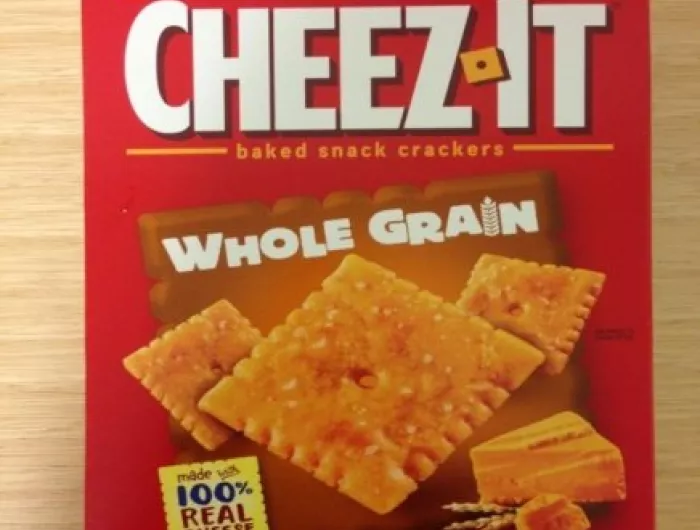Cheez-It Whole Grain Crackers

This lawsuit was settled after a federal appellate court ruled that “[a] reasonable consumer would likely be deceived” by Cheez-It Whole Grain’s labels, which made whole grain claims despite being made primarily of refined grains.
In May 2016, CSPI’s Litigation Department and its co-counsel sued Kellogg Company on behalf of several classes of consumers, claiming that Kellogg misleadingly labeled its Cheez-It Whole Grain crackers.
The Lawsuit
According to the Complaint filed in United States District Court for the Eastern District of New York, Cheez-It Whole Grain crackers, which are conspicuously labeled “WHOLE GRAIN,” or in some cases, “made with WHOLE GRAIN,” are primarily made of non-whole grains. The Plaintiffs alleged that Kellogg attempted to capitalize on the consumer trend for whole grains—which grains are more healthful than nutrient-depleted refined grains—without providing the actual benefit.
The District Court Order
In May 2017, the District Court concluded that, as a matter of law, no reasonable consumer could be misled by the “WHOLE GRAIN” claims into thinking that the product is made primarily with whole grains, and dismissed the complaint. Because the determination of what a reasonable consumer would perceive is a determination typically made by the trier of fact following discovery, and not from the bench, and because both the FTC and FDA have issued guidance on whole grain marketing that is consistent with the Plaintiffs’ claims of consumer deception, the Plaintiffs appealed that decision to the Court of Appeals for the Second Circuit.
The Second Circuit Order
In December 2018, the Second Circuit issued a decision reversing the District Court and holding that “[a] reasonable consumer would likely be deceived” by the “WHOLE GRAIN” claims. The Court made clear that fine print disclosures contained on the Cheez-It packaging did not dispel that misleading message.
The decision was a major victory for consumers. The Court sent a strong message to industry that products with “whole grain” or “made with whole grain” claims need to have at least more whole grain than white flour or adequately notify consumers of the amount of whole grain that they contain to avoid being deceptive. In addition, the Court told industry that consumers are not required to look beyond prominent, misleading representations on the front of a package to discover the truth from the small print.
The lawsuit was settled and dismissed.

